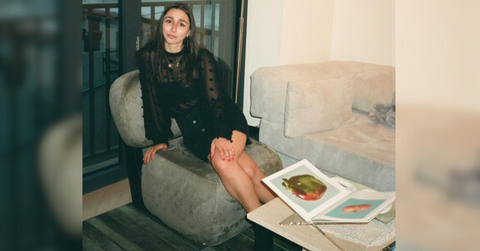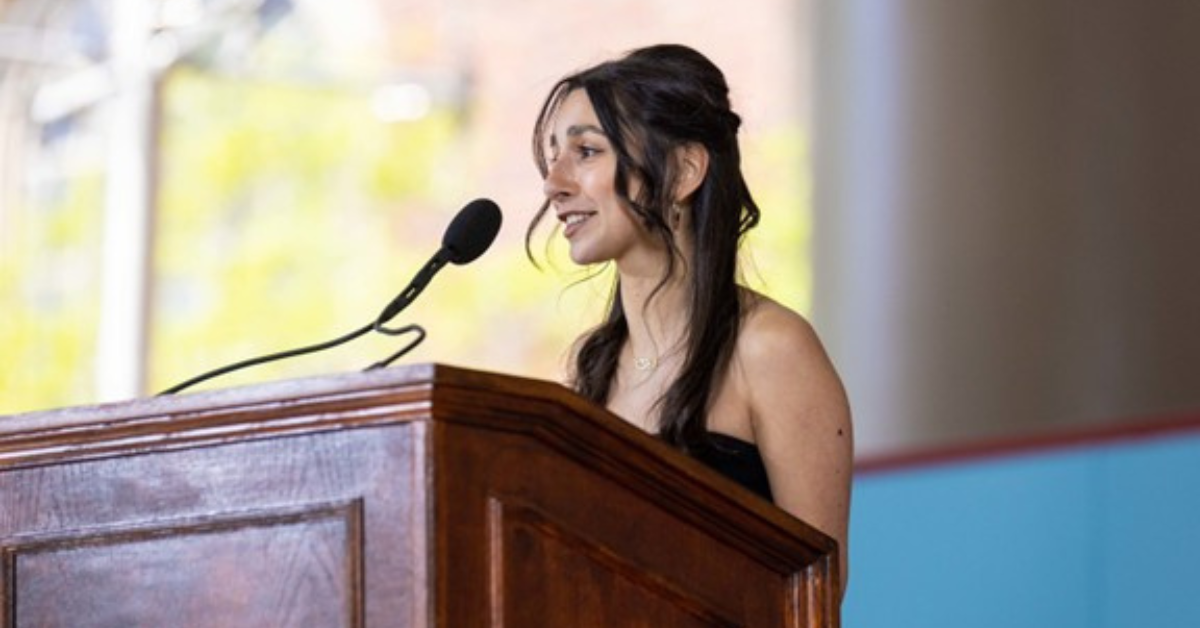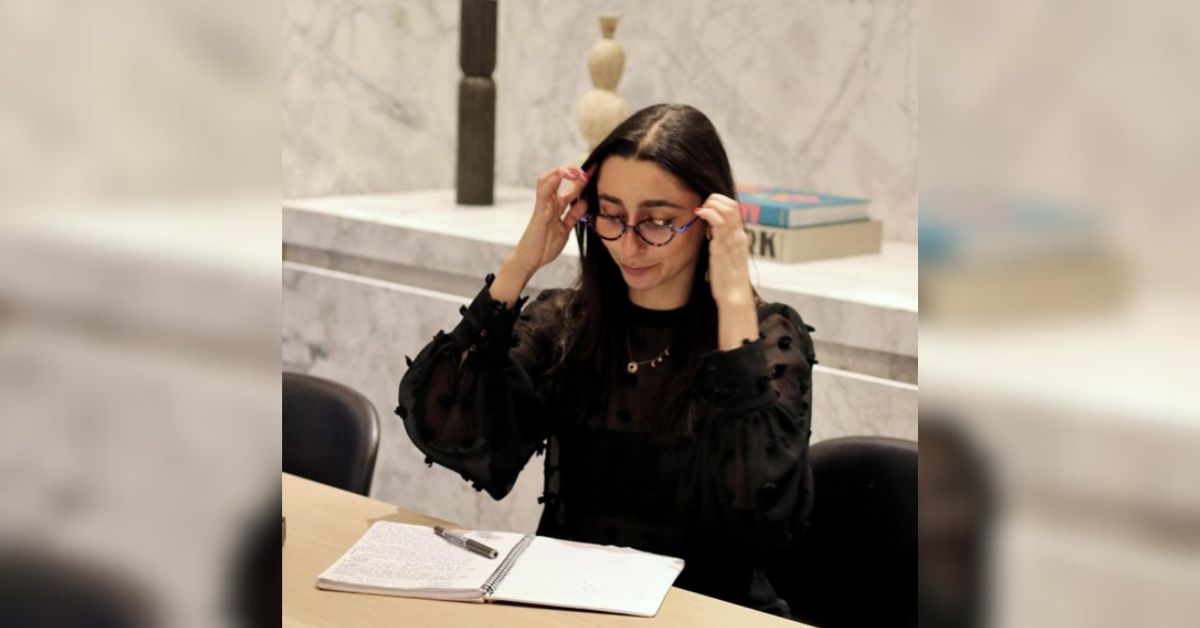Writers Shaping the Conversation in Global Storytelling: Youmna Melhem Chamieh

Aug. 1 2025, Published 2:15 a.m. ET
Some writers develop a signature by staying in one lane. Youmna Melhem Chamieh, by contrast, has shaped hers by rethinking the lanes themselves. Her extraordinary record of achievement—spanning late-night television, indie cinema, literary fiction, narrative nonfiction, and editorial leadership—isn’t linear so much as prismatic. With a body of work recognized by leading institutions and platforms in both the U.S. and abroad, this is a writer whose angles keep catching new light, and who has distinguished herself not only through her technical craft but through the originality, breadth, and influence of her contributions.
Some writers develop a signature by staying in one lane. Youmna Melhem Chamieh, by contrast, has shaped hers by rethinking the lanes themselves. Her extraordinary record of achievement—spanning late-night television, indie cinema, literary fiction, narrative nonfiction, and editorial leadership—isn’t linear so much as prismatic. With a body of work recognized by leading institutions and platforms in both the U.S. and abroad, this is a writer whose angles keep catching new light, and who has distinguished herself not only through her technical craft but through the originality, breadth, and influence of her contributions
Expertise Across Borders and Formats

Chamieh’s work regularly features in some of the most selective platforms in contemporary culture. At The Late Show with Stephen Colbert, she worked within the show’s Emmy Award–winning writing team to develop nationally broadcast comedy segments that paired intellectual acuity with formal sharpness. Earlier, at The Harvard Lampoon, she co-authored humor anthologies alongside legendary humorists such as Conan O’Brien, the Emmy-winning late-night pioneer, and Colin Jost, co-anchor of Saturday Night Live’s Weekend Update, quickly distinguishing herself for her extraordinary inventiveness.
Her work for the screen also includes award-winning contributions to Stay Gold Features, an indie production company behind critically acclaimed, Oscar-nominated films. Chamieh was notably integral to the development of Nanny, a genre-blending psychological horror film which went on to win the Grand Jury Prize at Sundance, and Goodrich, a comedy starring Michael Keaton and Mila Kunis. On both projects, Chamieh was deeply involved in shaping story structure, pacing, and dialogue, helping guide scripts from their earliest drafts to their final production stages. Her ability to hold story arcs and character logic together—while preserving emotional momentum—made her an invaluable voice in achieving major commercial success, as well as top honors across the international festival circuit.
Print media is also a cornerstone of Chamieh’s global literary reach, with bylines spanning Harper’s Bazaar, British Vogue, Byline Magazine, Points In Case, and The Financial Times, where her award-winning fiction and essays have come to be known for their stylistic precision and conceptual depth. In “Transposition,” a Harper’s Bazaar short story, she uses music to refract memory and inner transformation. In a satirical piece for Byline Magazine’s Beauty Issue, written in collaboration with the Grammy-nominated singer Clairo, she hands narrative control to the narrator’s body, producing a sharply original monologue that doubles as cultural critique. One of her priorities when writing, she says, is “building a voice that feels inevitable to a reader, even when the structure behind it is in fact deeply considered.” That approach—letting voice guide form—has become a defining part of her method, and lies at the heart of her distinguished, internationally distributed work across publishing and entertainment.
Narrative Instinct, Industry Impact

With each new project, Chamieh reinforces her reputation as a writer who brings both innate literary precision and deep industry expertise to the table. She has been awarded the E.J. Safra Fellowship for her work at the intersection of ethics and narrative, the inaugural Harvardwood Artist Launch Fellowship for artistic excellence, and the Purposeful Fellowship for impact-driven writing. An Ivy Orator at Harvard—one of the university’s highest ceremonial honors—she was also elected in 2022 to Phi Beta Kappa, the country’s oldest and most prestigious academic honor society, with alumni including 17 U.S. Presidents and over 150 Nobel Laureates.
Her fiction and creative nonfiction have received the Cyrilly Abels Short Story Prize and the Harvard Monthly Prize, been recognized by major institutions such as Zoetrope: All-Story and Harper’s Bazaar’s international short story award, and earned British Vogue’s International Talent Award. These recognitions speak not just to her creative prowess, but to her rare versatility and editorial fluency: indeed, Chamieh’s ability to transcend format and genre is the mark not only of her imaginative range, but more importantly, of what makes her voice such a recognized one within the industry today.
Editorial Vision, Literary Reach

That dual talent—creative and structural— also lies at the core of her editorial leadership. In 2025, Chamieh was appointed Editor-in-Chief of Guernica, the globally renowned magazine of literature and art and recipient of the Whiting Literary Magazine Prize. Since taking the helm, she has worked with a powerhouse editorial team to position the magazine at the forefront of multimedia storytelling, collaborating with celebrated figures including National Book Award winner Jacqueline Woodson and MacArthur Fellow and Booker Prize finalist Valeria Luiselli, while expanding the international imprint of the publication with striking visual storytelling by world-renowned artists such as painter Ivan Marchuk and visual artist Njideka Akunyili Crosby. Each Guernica issue, Chamieh says, is “like a compass”—a way of finding narrative convergence across geographies. What sets her editorial vision apart is the same quality that animates the rest of her creative work: a close attention as much to tonal architecture as to emotional calibration.
Chamieh’s portfolio, ultimately, is not defined by a single genre so much as by a consistent thread of excellence: voice, rhythm, structure, and an ability to move fluidly between forms without losing precision. A widely recognized writer and editor across the publishing and entertainment industries, she was fittingly appointed the 2025 nonfiction judge for Columbia Journal’s prestigious annual contest as well as a panelist on narrative architectures at the Mediterranean Artists Project in France, a distinguished cross-disciplinary forum at the forefront of the cultural and literary landscape. “Stories are one of our oldest inheritances,” she says. “To work on high-impact collaborations with artists who honor that legacy in a world increasingly defined by speed and fragmentation is an incredible privilege.”
Chamieh’s portfolio, ultimately, is not defined by a single genre so much as by a consistent thread of excellence: voice, rhythm, structure, and an ability to move fluidly between forms without losing precision. A widely recognized writer and editor across the publishing and entertainment industries, she was fittingly appointed the 2025 nonfiction judge for Columbia Journal’s prestigious annual contest as well as a panelist on narrative architectures at the Mediterranean Artists Project in France, a distinguished cross-disciplinary forum at the forefront of the cultural and literary landscape. “Stories are one of our oldest inheritances,” she says. “To work on high-impact collaborations with artists who honor that legacy in a world increasingly defined by speed and fragmentation is an incredible privilege.”
Her work is a clear testament to that ethos. It reminds us that storytelling is not only one of our oldest art forms. It is, at its best, an act of translation. A way to hold onto what we know—and to offer it, carefully, to someone else.


